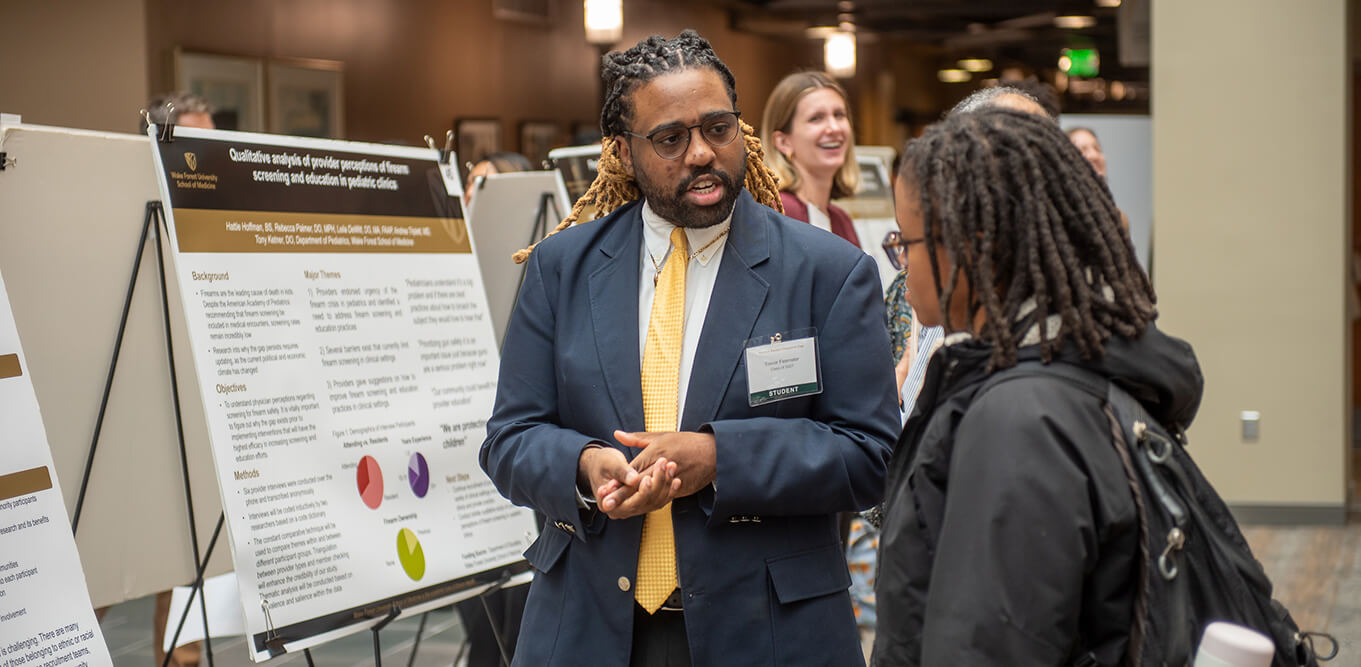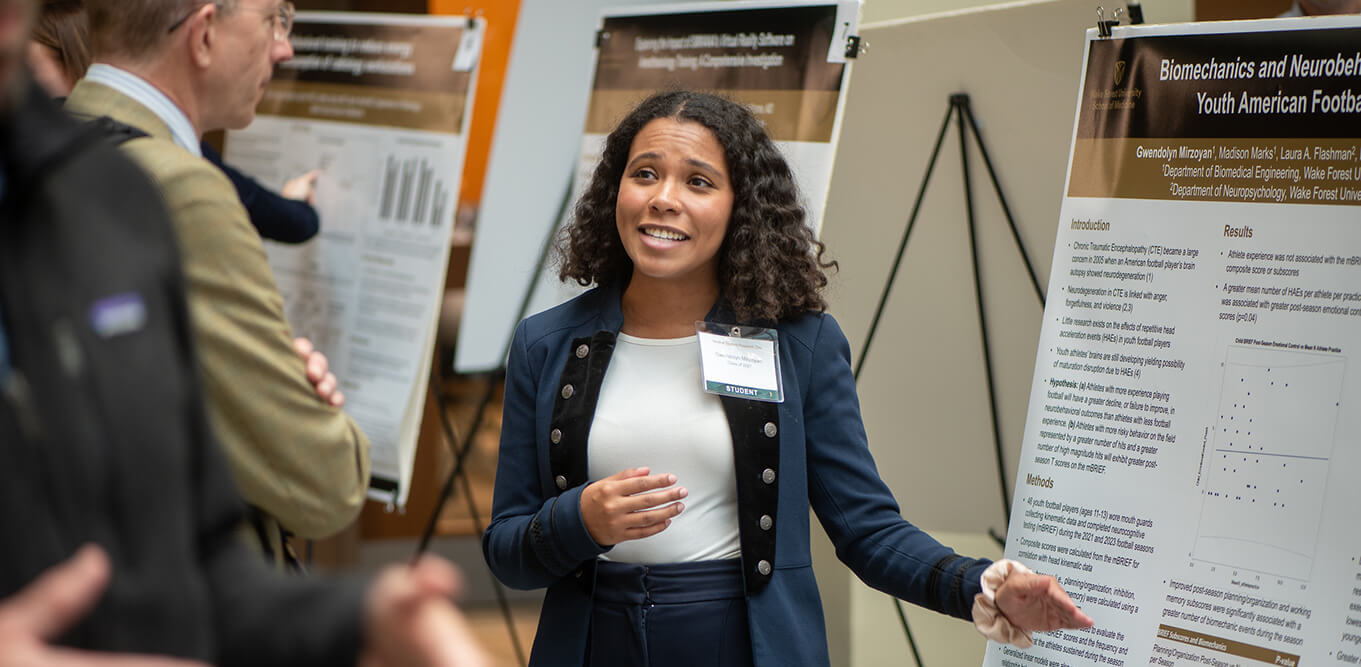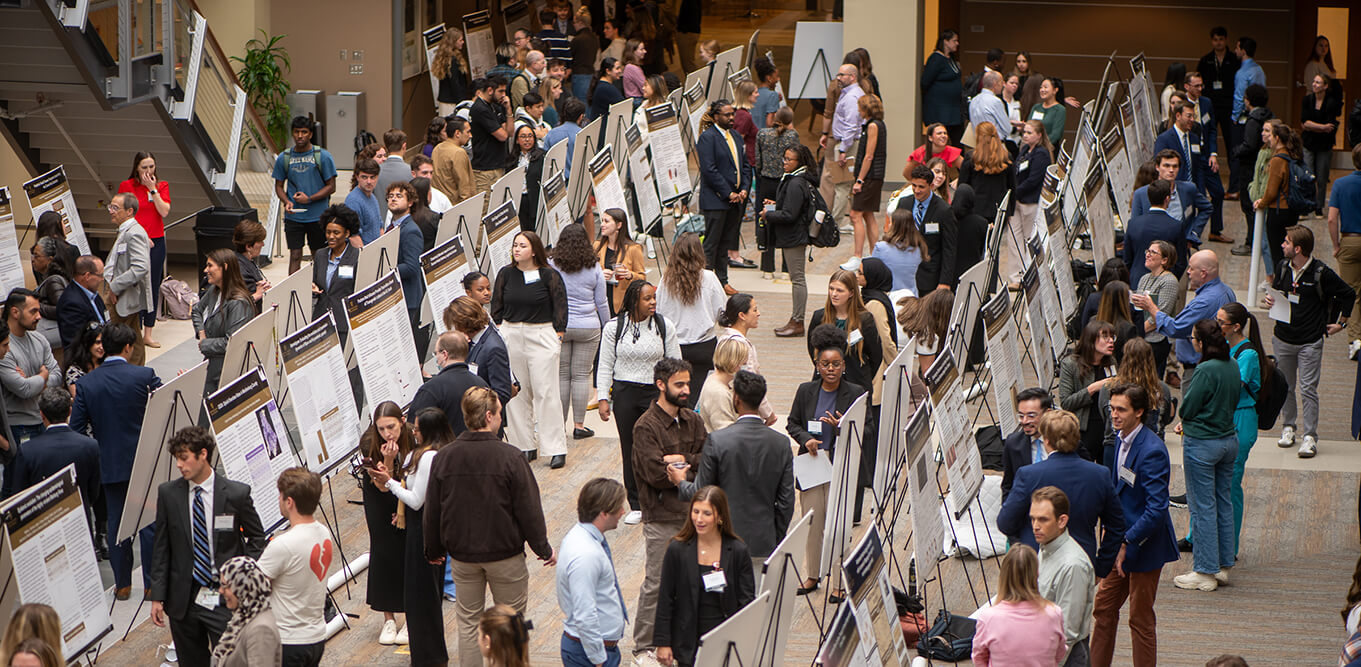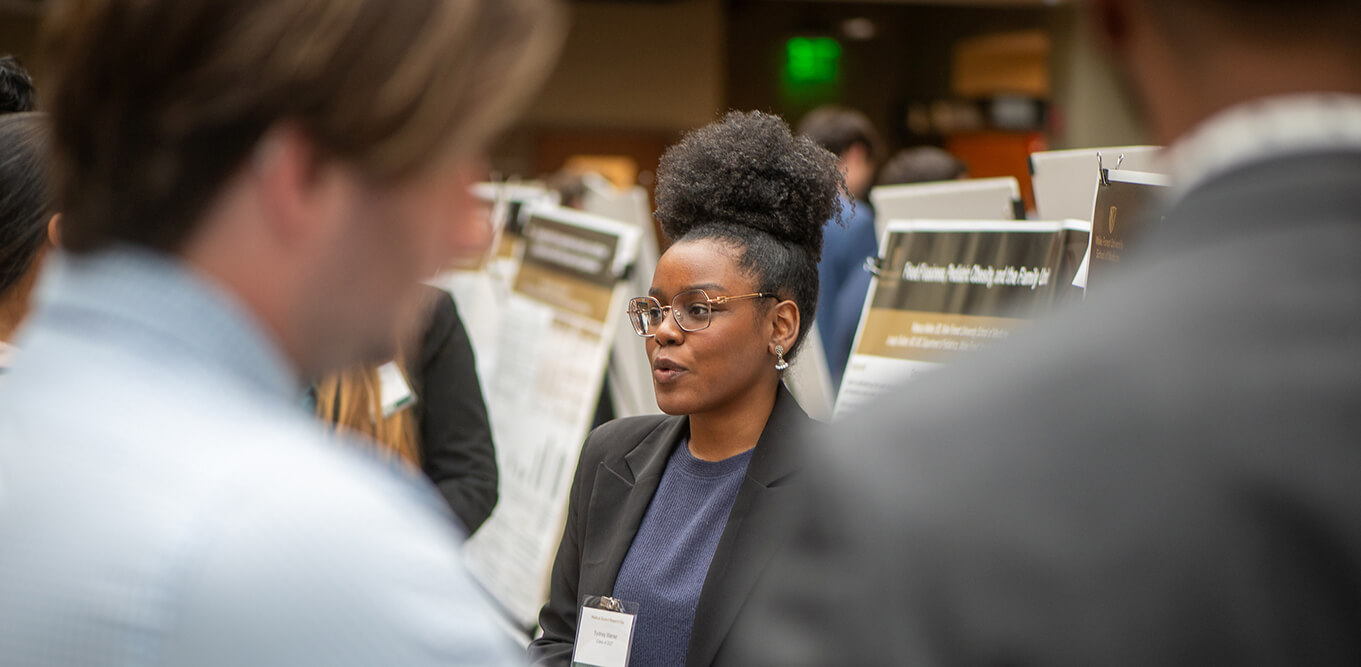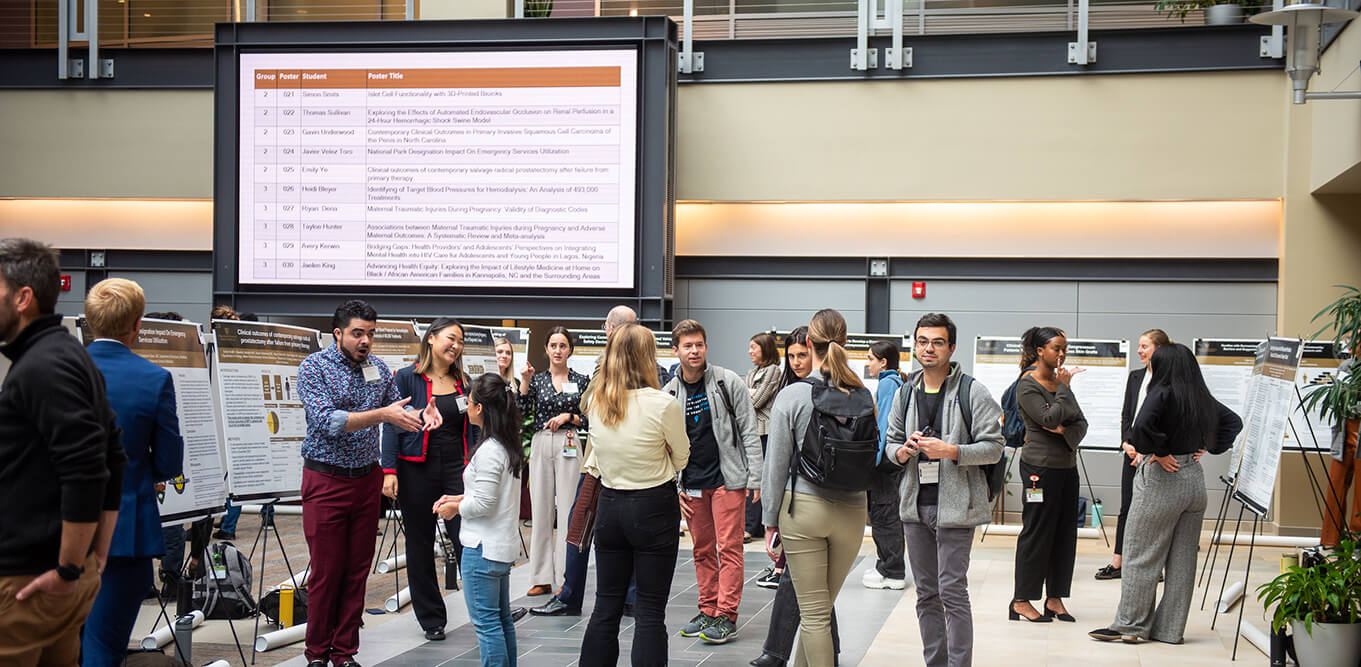Hall, whose research project is focused on body composition changes during chemoradiation for esophageal cancer, is mentored by Jonathan Salo, MD, clinical professor of surgical sciences. Salo spearheads this research and it interested Hall due to its implications, particularly its potential impact on patient outcomes following chemoradiation. Hall started her research in July and is eager to continue exploring how body composition may influence post-operative outcomes, as well as uncovering the significance of one of their findings – the notable differences in muscle mass loss between men and women during chemoradiation.
“Through this project and mentorship, I’ve gained so much knowledge from reviewing patient charts and discussing cases with the gastrointestinal team at Levine Cancer Institute,” Hall said. “Dr. Salo and his department have been fantastic mentors, offering insights into both clinical medicine and the future of the field through their research. This experience has shown me just how incredible the field of surgical oncology is and the profound impact the medical team has on patients’ lives.”
Medical Student Research Day is kicked off every year by a prestigious keynote speaker. Tenelle Porter, PhD, assistant professor of psychology at Rowan University, was the keynote speaker this year and discussed her research on what happens when teachers model intellectual humility.
Andy Mendoza, a second-year medical student, also participated in Medical Student Research Day. Mendoza was driven to participate due to the valuable opportunities it provides medical students to present their work, engage with peers and faculty and gain insight into the broad range of research happening within the medical field. He also credits the project with providing students with essential skills in scientific communication and critical thinking by cultivating and encouraging approaches to explain complex topics in a clear and concise manner. Mendoza also notes that the program assists with fostering collaboration and networking which allows students to connect with mentors and fellow researchers who can inspire future projects or career paths.
Mendoza’s research is focused on the influence of race and gender in the timing of successful arteriovenous access creation and use for hemodialysis. His interest in this stems from a broader passion for addressing health care disparities, especially within underserved populations. Mendoza has seen firsthand the impact that social determinants of health can have on patient outcomes through his experiences in community clinics. Mendoza is being mentored by Gabriela Velazquez, MD, associate professor of vascular and endovascular surgery.








